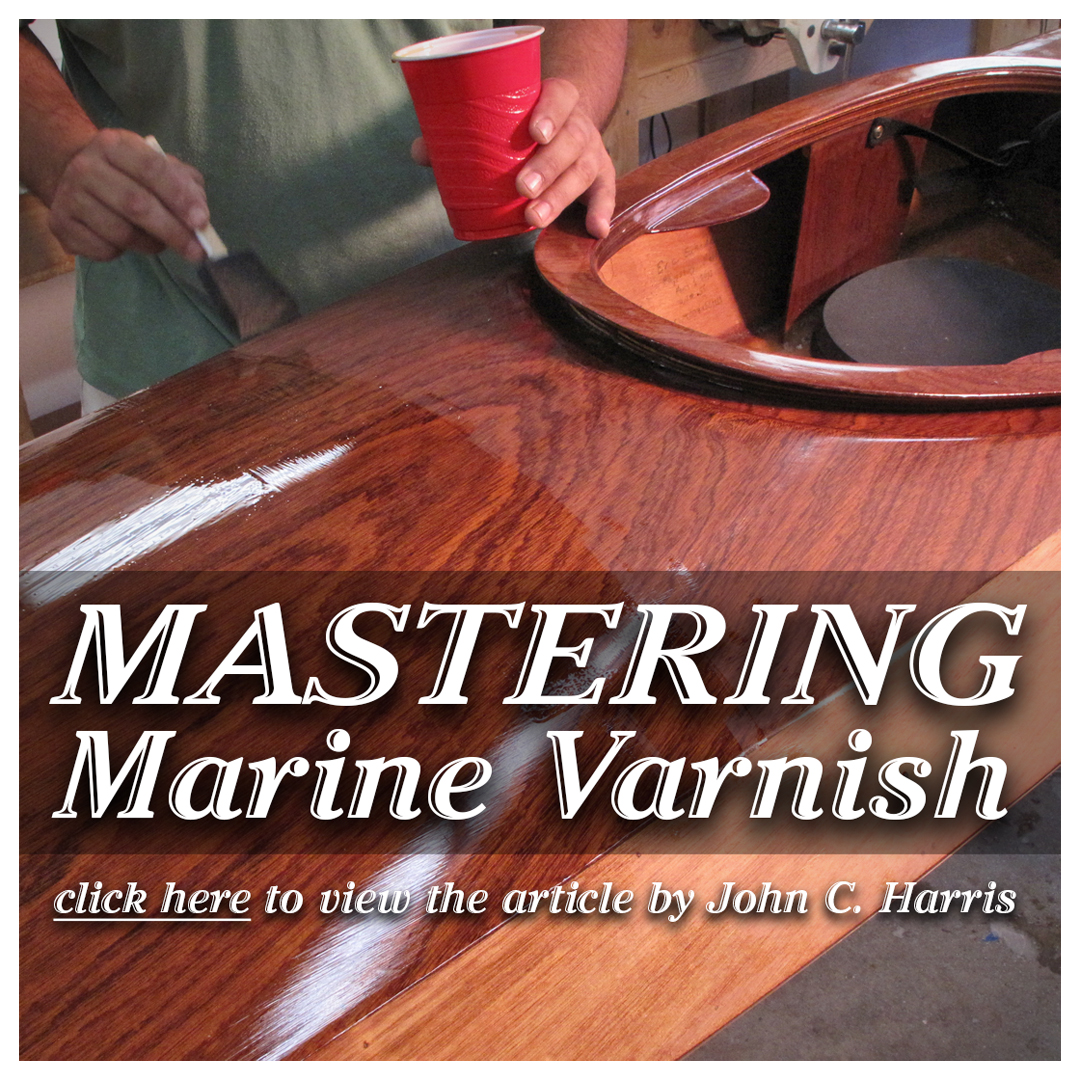Builders' Forum |
|
| ↓ Scroll to Last Comment ↓ | Forum Guidelines | Builders' Forum | |
Epoxy resin on 100 year-old growth hard wood?
My painter, Glen, and I were discussing epoxy-treated wood, as a coating to protect it from the elements. As you know, I've used this on the wooden kayak, but it is built of plywood.
My painter, Glen is refinishing the columns on my front porch. I had suggested once they were stripped (thanks to the sand-blasters), he might give them the following process:
- sand smooth
- Stain the wood (walnut...or chestnut)
- fill voids with epoxy+wood flour
- seal the wood with epoxy (this is what I did for the boat)
- finish them with a spar polyurethane finish.
During our discussion this morning, we wanted your opinion on #4, above. I had thought that with 100-yr old wood, it's pretty stable, and sealing it (even plasticizing it) would be beneficial. Glen's sources question whether with temperature swings, it might be more damaging. I countered with "it's 100-yr old wood, and epoxy is used all the time for repairs".
So I'm reaching out for your opinion. Thoughts?
4 replies:
RE: Epoxy resin on 100 year-old growth hard wood?
If you seal it with epoxy, you then need multiple coats of varnish to protect the epoxy from UV light. And you would then be in the trap of having to sand and recoat the varnish frequently.
I built my own post-and-beam house and used pine boards inside and out. The inside is untreated t&g pine. The outside is untreated batten-and-board siding. All the locals told me my pine siding would rot away within a few years. It is now 30 years later and I haven't had to replace any of the boards yet (though a few are getting close to old-age, as am I). If untreated wood is not in contact with the ground and is protected from most rain, it lasts almost forever. Look at those old, old barns.
RE: Epoxy resin on 100 year-old growth hard wood?
Heat ..... yes heat will cause epoxy to get soft and come off. We do that to remove it with heat guns. I don't know what that temperature is or how hot the sun baked temp of your columns would be. I have not noticed that on my wood boats in florida sun. I have burned my hand on metal but not the boat.
Water intrusion is likely what you are trying to avoid. It does bad things. Just to think about it what is the moisture reading on those 100 year old now naked columns? If it rains on them it might be already too wet for epoxy. As with the "tree trunk" columns mentioned above IF water can get inside the columns it can do bad things to the back side of the epoxy. I have two similar examples of that.
One, on a canoe I made floatation chambers in the bow and stern. The front deck plate and rub rails were epoxy covered. The rub rail between the boat and rail was not well encased. The boat was kept on a rack upside down. Water got into the wood at the rub rail. It migrated to the back side of the epoxy encase deck, discolored the wood and made some delamination. You wouldn't want water to migrate into the wood. Christmas decoration nail holes, joints at hand rails, tops/bottom connections of columns, etc are places where water can migrate.
Two, I put concrete precast columns on a building. We did not get the inside of the hollow column sealed from the weather, good enough. Moist air migrated down from the soffit and water migrated through the concrete and bubbled up the paint on the outside. It was a bad thing. Not a wood column but water can move through a lot of different materials.
Varnish, Marine......is what we use for UV protection on clear finishes. When varnish gets warn or sun faded it can allow the UV to get to the epoxy. Sun burnt varnish/epoxy can discolor, blush, and hence require frequent maintenance. My boats spending the summer on top of the truck during travel often show signs of this wear. Boats that stay at anchor or ride my truck get revarnished every year if maintained well.
Two part Clear coat Automotive ........ I've seen some boats treated with clear coat instead of varnish. It is toxic to breath and somewhat expensive. Not what I'd want to apply. ..... and maintain. I liken it to gel coat, which I will not do again. Greater ppe required than I have.
Epoxy with uv protection. .... there are some. But I have no experience with.
100 year old columns on the front porch...........seems like the original finish worked pretty good. Are you sure you want to change it?
RE: Epoxy resin on 100 year-old growth hard wood?
Ghenderson73 might you or your painter have any idea what the original finish on those columns might have been? What kind of hardwood? Those'd both give hints as to how they've managed to survive as long as they have.
There was varnish back then, along with other 'home-brew' combinations that might have been applied when they were new. Epoxy and polyurethanes weren't around!
As others have stated, the key to longevity is not by sealing moisture out but by taking steps to keep any potential moisture from getting inside, as well as allowing what may somehow get in to get back out again.
It's the moisture that gives insects and fungus what they need to do damage.
In the mean time, look up 'boat soup' recipes then wood preservatives sold under several brand names that contain copper naphthenate. These products are used to coat raw wood exposed to weather, they work well to resist moisture intrusion while at the same time they allow the wood to 'breathe' so any moisture inside can get back out. The copper napthenate is an addtional deterrent should any organic entities find your columns to their liking.













RE: Epoxy resin on 100 year-old growth hard wood?
» Submitted by jn1 - Wed, 12/6/23 » 9:16 AM
For what it's worth, we have an Adirondack style home with "tree-trunk" columns. Prior owner sealed them with a poly finish we have had to remove- water/ moisture found its way inside, but couldn't get out, so the rot/ decay process was started. That's been fixed and we've since been using old fashioned linseed oil for finishing them. Don't know how it might work for you, but for us, it was the solution. Good luck.